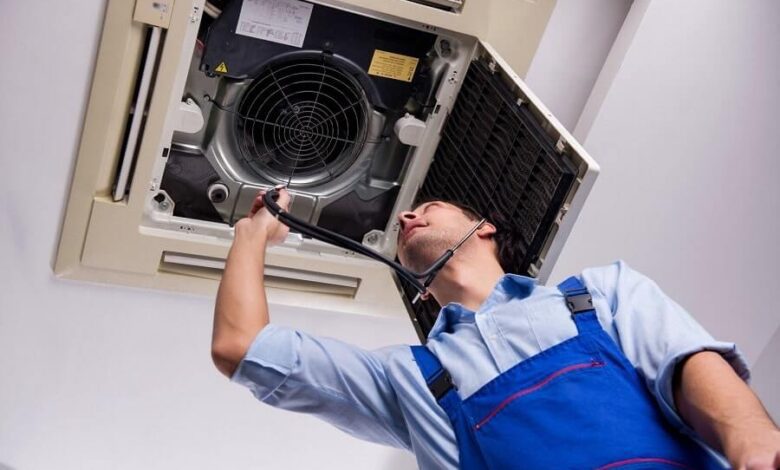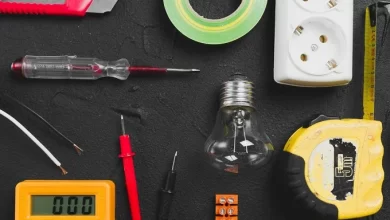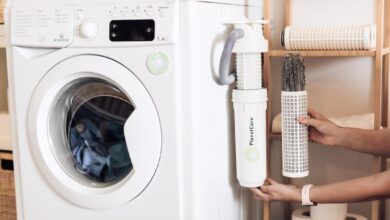Can You Fix a Freon Leak?

When you’re steam-bathing in sweltering heat, it’s your ready-to-rescue air conditioner that gets you out of hot water. But what happens when your cooling companion develops a freon leak?
Your skin prickles at the thought of muggy, uncomfortable afternoons, doesn’t it? Treating a freon leak can seem like a headache. But don’t sweat it, we’re here to help.
Welcome to our complete guide to understanding freon leaks and professional air conditioning services. Let’s uncover cool solutions for these hot problems!
Signs and Symptoms of a Freon Leak
Detecting a freon leak early is essential to preventing further damage to your air conditioning system. Some common signs of a freon leak include:
Reduced Cooling Performance
If your air conditioner is not cooling your space as effectively as it used to, it may indicate a freon leak. The loss of refrigerant prevents the system from efficiently cooling the air.
Increased Energy Bills
Freon leaks can cause your air conditioning system to work harder to maintain the desired temperature, resulting in higher energy consumption and increased utility bills.
Hissing or Bubbling Sounds
A freon leak can produce hissing or bubbling sounds near the refrigerant lines. If you notice any unusual noises coming from your air conditioning unit, it’s crucial to investigate further.
Ice Buildup on the Evaporator Coil
When freon leaks, the evaporator coil can freeze due to the reduced refrigerant levels. If you notice ice buildup on the coil, it may indicate a freon leak.
Unpleasant Odors
Freon leaks can emit a distinct, pungent odor. If you detect an unusual smell coming from your air conditioning system, it’s important to have it inspected for a potential freon leak.
Understanding the Dangers of a Freon Leak
Aside from the negative impact on cooling performance, a freon leak poses various dangers to your health and the environment. Freon, when released into the atmosphere, contributes to ozone depletion. Furthermore, exposure to freon can have adverse effects on human health, including:
Respiratory Issues
Freon exposure can cause respiratory problems such as coughing, shortness of breath, and chest tightness. Individuals with pre-existing respiratory conditions may be more susceptible to these effects.
Skin Irritation
Freon can irritate the skin, leading to redness, itchiness, and rashes upon contact. It’s important to avoid direct contact with freon and seek medical attention if skin irritation occurs.
Eye Irritation
Freon can also cause eye irritation, including redness, burning, and watering. If you experience any eye discomfort after exposure to freon, rinse your eyes thoroughly with water and seek medical assistance if the symptoms persist.
Nausea and Dizziness
Inhaling freon can result in symptoms such as nausea, dizziness, and headaches. If you experience these symptoms, it’s imperative to seek fresh air and medical attention immediately.
Steps to Detect a Freon Leak
Detecting a freon leak requires a systematic approach. Follow these steps to identify if your air conditioning system has a freon leak:
Visual Inspection
Begin by inspecting the refrigerant lines and components for any visible signs of leakage. Look for oil stains, corrosion, or ice buildup, as they may indicate a freon leak. Pay close attention to the evaporator coil and connections.
Electronic Leak Detector
Utilize an electronic leak detector, specifically designed to detect freon leaks. This handheld device can identify the presence of freon by sensing the refrigerant in the air. Follow the manufacturer’s instructions for accurate detection.
Dye Test
Another method to detect a freon leak is by using a UV dye. Injecting a UV dye into the air conditioning system allows for easy identification of leaks. Once the dye is injected, use a UV light to locate any areas where the dye is present.
Pressure Gauge Test
A pressure gauge test can help determine if there is a freon leak. Connect a pressure gauge to the air conditioning system and compare the pressure readings with the manufacturer’s specifications. A significant drop in pressure may indicate a leak.
Common Causes of Freon Leaks
Understanding the common causes of freon leaks can help prevent them from occurring in the first place. Some typical causes include:
Age and Wear
Over time, the refrigerant lines and components of your air conditioning system can deteriorate, leading to leaks. Regular maintenance and inspections can help identify and address potential issues before they escalate.
Poor Installation
Improper installation of the air conditioning system can result in refrigerant leaks. It’s essential to use air conditioning services for installation to ensure proper sealing and connections.
Physical Damage
Accidental damage to the refrigerant lines, such as punctures or cuts, can cause freon leaks. Take caution when moving objects near the air conditioning unit to avoid potential damage.
Corrosion
Corrosion can occur on the refrigerant lines due to exposure to moisture, chemicals, or environmental factors. Regular inspections can help identify signs of corrosion and prevent leaks.
How to Fix a Freon Leak
Once a freon leak is detected, it’s essential to address the issue promptly. Fixing a freon leak should be performed by qualified freon repair professionals who have the necessary expertise and equipment. The process typically involves the following steps:
Identify the Leak Source
Professionals will use the information gathered during the detection process to pinpoint the exact location of the freon leak. This may involve further inspection and testing.
Repair or Replace Components
Depending on the severity of the leak and the condition of the affected components, repairs or component replacements may be necessary. This may include repairing damaged refrigerant lines, replacing faulty connections, or fixing other system components.
Seal the Leak
Specialized sealants or epoxy can be used to seal small leaks in the refrigerant lines. These sealants bond to the metal surfaces and prevent further leakage.
Recharge Refrigerant
Once the refrigerant leak is repaired and the system is secure, the refrigerant needs to be recharged to the appropriate levels. This requires the use of specialized equipment and should be performed by experts.
Get AC Repair ASAP
Fixing a freon leak is vital for maintaining the efficiency and safety of your air conditioning system. By understanding the signs, you can address freon leaks effectively. It’s advisable to seek professional air conditioning services for refrigerant repair to ensure that everything is fixed correctly, and no further issues need to be addressed.
If you’d like to read more informative articles, please continue browsing our website!




